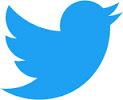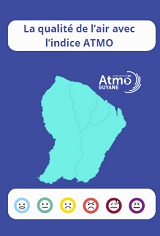Blada.com
samedi 21 février
Boîtes aux lettres
Courrier des lecteurs
Petites annonces
Emploi / Formation
Covoiturage
Infos citoyennes
Infos citoyennes
10/11/21
Prendre le vaccin à domicile, c’est possible !
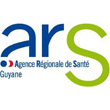 L’assouplissement des conditions d’utilisation du vaccin Pfizer et l’arrivée du vaccin Janssen en Guyane rendent possible la vaccination chez les personnes volontaires. Celle-ci peut être réalisée par les infirmiers, les sages-femmes, les masseurs-kinésithérapeutes ou les médecins effectuant des visites à domicile. Aujourd’hui, le secteur libéral compte pour environ 25 % des doses administrées en Guyane.
L’assouplissement des conditions d’utilisation du vaccin Pfizer et l’arrivée du vaccin Janssen en Guyane rendent possible la vaccination chez les personnes volontaires. Celle-ci peut être réalisée par les infirmiers, les sages-femmes, les masseurs-kinésithérapeutes ou les médecins effectuant des visites à domicile. Aujourd’hui, le secteur libéral compte pour environ 25 % des doses administrées en Guyane.
Il n’y a encore pas si longtemps, la vaccination à domicile, en Guyane, était le seul fait de l’hospitalisation à domicile. Une poignée de patients en bénéficiait chaque semaine. Désormais, la vaccination à domicile va pouvoir prendre davantage d’ampleur. L’arrivée du vaccin Janssen, dont les conditions de transport et de stockage sont plus simples que le Pfizer, est un premier élément en faveur de la vaccination chez les personnes volontaires. La possibilité offerte à davantage de professionnels de santé d’administrer le vaccin de Pfizer/BioNtech et de se fournir en pharmacie en est à un second. C’est ainsi que vendredi, un habitant de l’Île-de-Cayenne a reçu sa dose par Awatef Argoubi, infirmière libérale à Cayenne.
La seringue préparée par le pharmacien
C’était une première pour elle, s’agissant de la vaccination contre le Covid-19. Le patient, qui ne souhaitait pas que sa vaccination s’ébruite, l’avait sollicitée pour que cela se passe chez lui, avec du Pfizer. En début d’après-midi, Awatef Argoubi se présente à la Pharmacie internationale, à Cayenne. Eric Bourdin, docteur en pharmacie et qui propose également la vaccination dans son officine, lui a préparé une seringue vingt minutes plus tôt. Le reste du flacon, tant qu’il n’est pas reconstitué, peut être conservé trente jours entre 2 et 8°. L’infirmière récupère également une sacoche fournie par l’Agence Régionale de Santé et des pains de glace, pour le transport jusque chez son patient. De l’Anapen en cas de choc anaphylactique et la voici en route pour rejoindre son patient. A son retour chez elle, elle enregistrera son acte dans le système d’information Vaccin Covid.
« 100 % de mes patients chroniques sont vaccinés, se réjouit celle qui est aussi présidente locale de la Fédération nationale des infirmiers (FNI). Je leur ai expliqué ; ils m’ont demandé ce que j’en pensais ; ils m’ont demandé si je l’avais fait ; ils m’ont observée pendant quelques jours et ont constaté que j’étais toujours en vie. Quand ils me le demandaient, je leur prenais leur rendez-vous. »
Vacciné à domicile
La vaccination à domicile cible d’abord les personnes ayant des difficultés à se déplacer, en raison de leur état de santé, de leur éloignement du système de soin ou de leur précarité. Elle sert aussi, comme dans le cas de vendredi, aux personnes ne souhaitant pas que leur vaccination soit connue. En Guyane, la norme sociale reste de ne pas être vacciné, même si la couverture vaccinale augmente. Certaines personnes peuvent donc ressentir une pression, de leur entourage notamment, à l’idée de se faire vacciner.
Ce souci de discrétion de certains patients, Awatef Argoubi et Eric Bourdin l’ont remarqué à plusieurs reprises. « Des gens de Saint-Laurent viennent se faire vacciner à Cayenne et inversement. C’est quand même nul », déplore le pharmacien. L’infirmière, pour sa part, a obtenu que certains de ses patients se fassent vacciner à l’hôpital, pour leur éviter de se présenter à l’Encre. Outre ce profil de patient, elle espère, dès les prochains jours, commencer à vacciner ses patients grabataires qui ne pouvaient se déplacer en centre de vaccination jusque-là. Dans les prochains jours, la communication autour de cette possibilité sera renforcée. Il ne faut donc pas hésiter à le faire savoir à vos patients !
Les libéraux réalisent désormais un quart des vaccinations
Cette semaine, les professionnels de santé libéraux vont franchir la barre des 10 000 injections réalisées dans leur cabinet, leur officine ou leur structure d’exercice (hors établissement de santé). Ce n’est pas rien si l’on considère que la vaccination en pharmacie n’a débuté que fin mai, et celle en cabinet que fin juillet. Et ce d’autant que les professionnels de santé de ville vaccinant contre le Covid-19 sont encore peu nombreux.
Avec un rythme de 450 à 500 doses administrées chaque semaine (voir graphique ci-contre), les libéraux assurent 20 à 25 % de la vaccination en Guyane. Avec le ralentissement de la demande, avec la simplification de l’utilisation du vaccin Pfizer, ils seront amenés à prendre une part encore plus importante dans cette activité, tandis que les grands centres de vaccination, indispensables quand la demande était forte, commencent à réduire la voilure.
Aujourd’hui, les médecins, les infirmiers, les chirurgiens-dentistes, les sages-femmes et les masseurs-kinésithérapeutes peuvent commander les flacons ou des seringues préparées dans les pharmacies d’officine. Pour les professionnels se rendant au domicile, l’Agence Régionale de Santé a commandé des sacoches isothermes. Les pharmacies en ont été dotées pour les infirmiers. Les sages-femmes et les masseurs-kinésithérapeutes souhaitant également vacciner leurs patients chez eux sont invités à se faire connaître auprès de l’ARS afin qu’il leur en soit donné.
Cet article est issu de la Lettre pro de l’Agence régionale de santé. Vous pouvez vous y abonner en remplissant le formulaire suivant : https://forms.sbc28.com/5a8bed50b85b5350ef1cd117/t13M7zUZQi2XMq5E3DdnhQ/0WQoeDwjRXqJblCpKbLDzA/form.html
 The relaxation of the conditions of use of the Pfizer vaccine and the arrival of the Janssen vaccine in French Guiana make vaccination possible in volunteers. This can be done by nurses, midwives, physiotherapists or doctors making home visits. Today, the liberal sector accounts for about 25% of the doses administered in French Guiana.
The relaxation of the conditions of use of the Pfizer vaccine and the arrival of the Janssen vaccine in French Guiana make vaccination possible in volunteers. This can be done by nurses, midwives, physiotherapists or doctors making home visits. Today, the liberal sector accounts for about 25% of the doses administered in French Guiana.
It was not so long ago that home vaccination in French Guiana was the sole result of home hospitalization. A handful of patients benefited from it every week. From now on, home vaccination will be able to take on more importance. The arrival of the Janssen vaccine, whose transport and storage conditions are simpler than Pfizer, is a first element in favor of vaccination in volunteers. The possibility offered to more healthcare professionals to administer the vaccine from Pfizer / BioNtech and to obtain it in pharmacies is in a second. So on Friday, a resident of Île-de-Cayenne received his dose from Awatef Argoubi, a liberal nurse in Cayenne.
The syringe prepared by the pharmacist
It was a first for her when it came to vaccination against Covid-19. The patient, who did not want his vaccination to be publicized, had requested that it happen at home, with Pfizer. At the start of the afternoon, Awatef Argoubi presented himself to the International Pharmacy in Cayenne. Eric Bourdin, doctor of pharmacy and who also offers vaccination in his dispensary, prepared a syringe for him twenty minutes earlier. The remainder of the vial, as long as it is not reconstituted, can be stored for 30 days at 2 ° to 8 °. The nurse also collects a bag provided by the Regional Health Agency and ice packs, for transport to her patient. Anapen in case of anaphylactic shock and here she is on her way to join her patient. When she returns home, she will register her act in the Vaccine Covid information system.
“100% of my chronic patients are vaccinated, rejoices the one who is also local president of the National Federation of Nurses (FNI). I explained to them; they asked me what I thought about it; they asked me if I had done it; they watched me for a few days and saw that I was still alive. When they asked me, I made their appointment. "
Home vaccinated
Home vaccination primarily targets people who have difficulty moving around, due to their state of health, their distance from the healthcare system or their precariousness. It is also used, as in the case of Friday, to people who do not want their vaccination to be known. In French Guiana, the social norm remains not to be vaccinated, even if vaccination coverage is increasing. Some people may therefore feel pressure, especially from those around them, at the idea of getting the vaccine.
This concern for discretion of certain patients, Awatef Argoubi and Eric Bourdin have noticed on several occasions. “People from Saint-Laurent come to be vaccinated in Cayenne and vice versa. It's still bad, "laments the pharmacist. The nurse, for her part, has arranged for some of her patients to be vaccinated at the hospital, so that they do not have to come to Ink. In addition to this patient profile, she hopes, in the next few days, to start vaccinating her bedridden patients who could not travel to the vaccination center until then. In the coming days, communication around this possibility will be reinforced. So don't hesitate to let your patients know!
Liberals now perform a quarter of vaccinations
This week, liberal health professionals will cross the threshold of 10,000 injections performed in their practice, their pharmacy or their practice structure (outside health establishments). This is not insignificant considering that the vaccination in pharmacies did not start until the end of May, and that in the office only at the end of July. And this is even more so as city health professionals vaccinating against Covid-19 are still few in number.
With a rate of 450 to 500 doses administered each week (see graph opposite), the Liberals provide 20 to 25% of vaccination in French Guiana. With the slowdown in demand, with the simplification of the use of the Pfizer vaccine, they will have to take an even more important part in this activity, while the large vaccination centers, essential when demand was high, begin to reduce the canopy.
Today, doctors, nurses, dentists, midwives and physiotherapists can order the vials or prepared syringes from community pharmacies. For professionals going to the home, the Regional Health Agency has ordered isothermal bags. Pharmacies have been provided with them for nurses. Midwives and physiotherapists also wishing to vaccinate their patients at home are invited to make themselves known to the ARS so that it can be given to them.
This article is from the Professional Letter of the Regional Health Agency. You can subscribe to it by filling out the following form: https://forms.sbc28.com/5a8bed50b85b5350ef1cd117/t13M7zUZQi2XMq5E3DdnhQ/0WQoeDwjRXqJblCpKbLDzA/form.html
Raccourcis

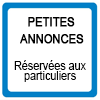
passer une petite annonce

passer une annonce de covoiturage
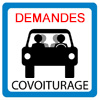

passer une annonce d’emploi
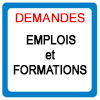
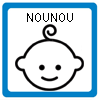
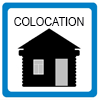
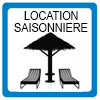

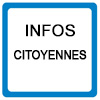
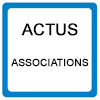
associations, postez vos actualités

participez au courrier des lecteurs
La Guyane c’est ici
La qualité de l’Air avec
ATMO
Photothèque

Lancements 2022
Vol 259 Ariane 5


